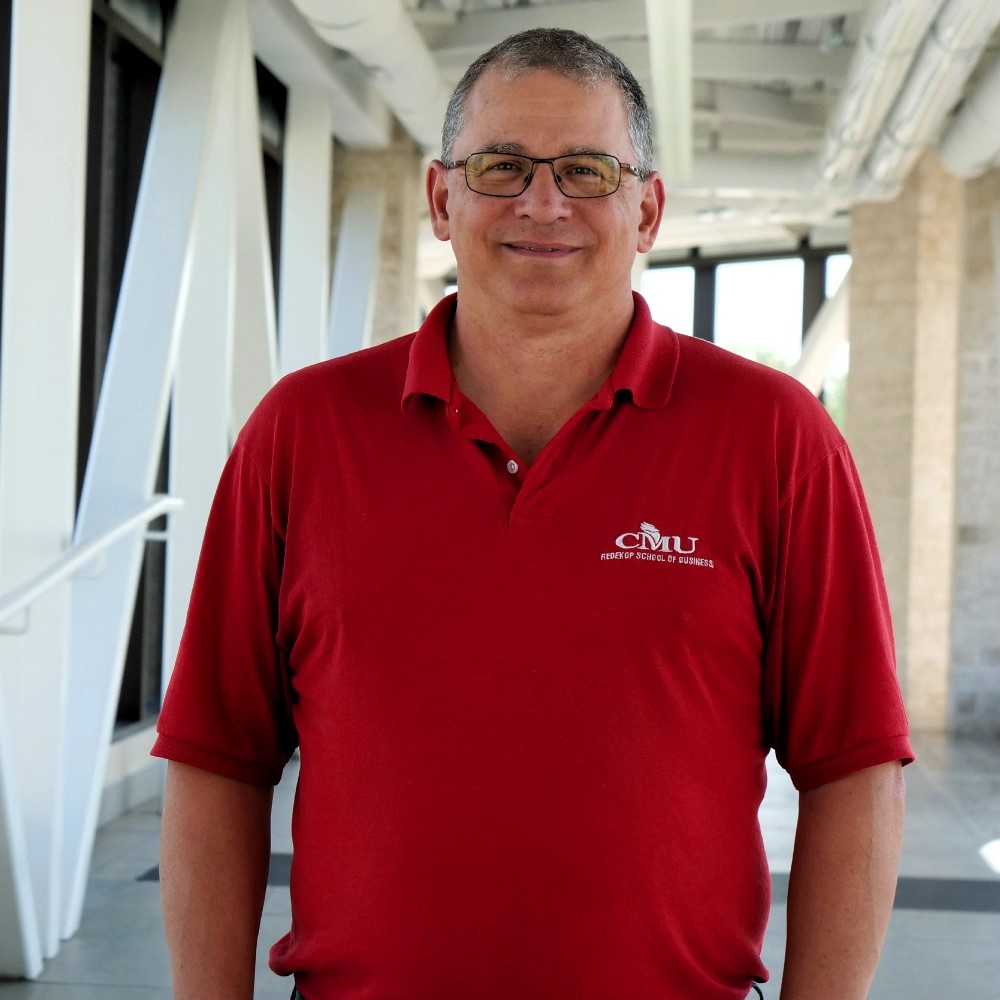News and Releases

Faculty Profiles
Faculty: In Their Own Words - Dr. Craig Martin
Tuesday, November 14, 2023 @ 4:13 PM | Faculty Profiles

Dr. Craig Martin is Assistant Professor of Business and Program Coordinator for the Master of Business Administration program. He has taught at CMU since 2008.
What are you teaching right now that you're most excited about?
I've got two strategy courses, and the second one is especially fun. We actually turn the class into a consulting firm and we go out and work with real businesses. The idea is to work with small businesses and small organizations that typically don't have enough money to pay for a consulting firm. I also like taking on ones that struggle. Siloam Mission [a humanitarian organization serving those experiencing homelessness in Winnipeg] opened up their commercial laundry two summers ago. That business plan was actually done by our students. Those are the types of things we've been able to do and it really has an impact on students.
What are you researching and writing?
I'm wrapping up one project working at religion and perceptions of animal welfare. I come from an agricultural economics and business background. Where does religion tie in to that? Well, what are the things you think about different ethnic groups around the world? It's religion and food. Often I try to bring them together and take a look at that. I presented a paper at the University of Cambridge in England this summer that dealt with that. While I was there, I also joined a research institute: the Kirby Laing Centre for Public Theology, based in Cambridge. It's a chance to bring economists and theologians together in a friendly environment and have really meaningful exchanges. I have colleagues now in New Zealand, Australia, the UK, Europe, and the United States. I'm the only Canadian in the group. It's a research hub, so we're sharing ideas, we're comparing research, we can present papers in rough draft. It's hopefully going to be starting a new area of research for me. I'm looking at areas of economics, natural law, natural rights, and theology and how we can bring those together to look at political economic structures.
Where or how do students give you hope?
I see a great number of students that actually do care about things going forward. I teach in business, so you might expect students to be money-driven. While we don't necessarily view money as a bad thing, we see a much broader picture and students seem to be picking up on that really well these days. We talk a lot about what we call the triple bottom line: people, planet, profits. Students seem to be biting into that common good language really well and that gives me hope there will be business and organizational leaders out there in the future who will think through these things very carefully that will hopefully bring about a better world. In the master's class I'm teaching right now, it was the first time a lot of them were exposed to thinking about more than financial bottom line. We still do concern ourselves with finance and that the organization still needs to financially survive, but it's not the end of the story. For me, that's probably what gives me a lot of hope, is I see a lot of students really taking that to heart.
What you are reading for enjoyment?
I typically read fantasy or science fiction. I read some Anne McCaffrey, who writes the Dragonriders of Pern series. Raymond Feist is another author that I've read all his books. He put out a new one earlier this year, so I read that in the spring. I also picked up and reread some Terry Brooks stuff. It's vastly different than what I read for work, which is good, that's what it needs to be.
What saying or motto inspires you?
"Life is more complex than we wish it was." It's the idea that, especially in my field, people want simple answers. There aren't simple answers, there are very complex answers, and we have to understand that complexity. You spend decades creating a problem, you can't fix it in days. It's going to take decades to get out of it. A big chunk of economics is that way—our models tend to be simplifications, but the world is far more complex.

 Print This Article
Print This Article